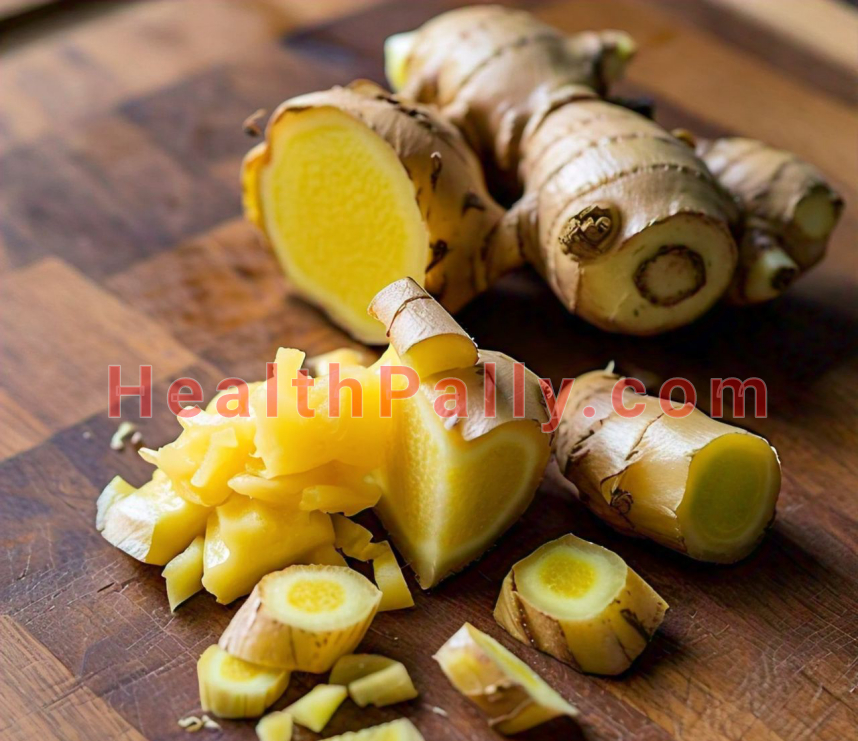Ginger bulb contains a number of substances that make strong positive effects.
For example, ginger strengthens the immune system, bring the metabolism in various ways into the swing, Alleviate pain and inflammation.
It also helps against nausea and vomiting and can prevent many Alzheimer’s diseases and cold
Since ginger contains much glutathione, it has become a powerful antioxidant that brings the immune system in top form and enables the white blood cells to function properly.
Is there anyone that’s already ill, have a quick relief with hot ginger tea that warms you from the inside, making you come over the unpleasant scratchy throat and allows a freer breathing deeply for a cold quickly.
Nutritionist have also discovered and recommended Zingiber officinale to athletes.
When you struggle in the training, experience muscle soreness, don’t worry but start taking either ginger extract, juice or tea.
Ginger calms your stomach and you can take it confidently with your breakfast, for example, when mixed with oatmeal even a few hours before a competition.
Ginger is an effective and versatile analgesic: Gingerols and Shoagole contained in Zingiber officinale can inhibit the pain-inducing enzyme, cyclo-oxygenase, as well as the active ingredient, acetylsalicylic acid does; it is also known as the main component of the Painkiller aspirin.
Ginger can (just like aspirin) actually relieve pain and inflammation and also reduce the tendency to blood clotting. Perhaps, that might dampen even mild migraine attacks in advance, often attributable to blood circulation to the head area.
Ginger is also successful when used against Osteoarthritis in humans and animals characterized by inflammation in the joints. Thereby, an enzyme is released, which further break down the already damaged cartilage.
Ginger acts here twice: it slows the inflammatory processes and also counteracts the pain symptom. Thereby, Zingiber officinale extracts lessen the pain and the person can even feel like moving since the cartilage and joints are better provided with nutrients and synovial fluid and they now remain elastic.
Osteoarthritis typical stiffness wanes significantly, especially in the morning. Similarly, the use of ginger extracts in rheumatism is very appreciable.
Usually, ginger soothing affects the stomach, prevents stomach cramps, vomiting and nausea as they occur during travel or motion, sickness or in early pregnancy.
So far, there’s no adverse effects known on the fetus or pregnancy based on history of medical records. The Shoagol and Galanolactone active substances affect the brain area that is responsible for the nausea.
Ginger and Food Appetite
It has been proven that even that severe side effects from chemotherapy can be brought under control by the ingestion of ginger.
The drugs administered in chemotherapy attack not only tumor cells, but also healthy intestinal cells.
In this damage, they release serotonin, which in turn attracts the vomiting Center in the brain via specific receptors on nerve cells.
It results to constant nausea, loss of appetite and inability to keep food down.
The active ingredients of ginger block these serotonin receptors and thereby reduce the complaints, often by more than 40% in cases observed.
Patients develop appetite again and can gather strength to successfully get through the chemotherapy.
Although, critics lead that ginger probably minimizes the effect of some chemotherapy drugs; but for any successful therapy, it has consequences and side effects from case to case that offset each other.
Ginger and Alzheimer’s
Studies showed ginger can even prevent Alzheimer’s disease.
The polyphenols that are found in green tea, turmeric and red wine are the reason.
They are anti-inflammatory and prevent in particular the formation of beta-amyloid plaque that can interrupt the connection of neurons to the brain and thus trigger Alzheimer’s.
Also related, the ginger turmeric, (Curcuma longa), some as yellow ginger or Saffron Wreath are known to be more potent and even fight the dreaded plaques.
Side Effects of Ginger
A study in the University of Sydney, shows that the sharp substances contained in the Zingiber officinale , the Gingerols.
The glucose uptake in muscle cells can improve athletes or even diabetes patients which benefits from the fact that the blood sugar level drops, because the glucose is processed by the body more efficiently.
Side effects such as heartburn, bloating, or nausea were continuously observed in different cases of taking ginger extracts.
However, this did not happen when the fresh tuber was taken as the ginger extracts were suspected to have food additives or impurities.
World Health Organization (W.H.O) warn that ginger should not be eaten excessively when pregnant or by a patient suffering from gallstones.
The Gingerols and Shoagole are probably largely responsible for the anti-inflammatory, antibacterial and pain-liberating effect of the ginger. Their share is usually about 3%.
